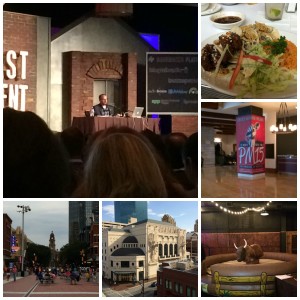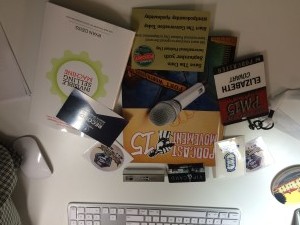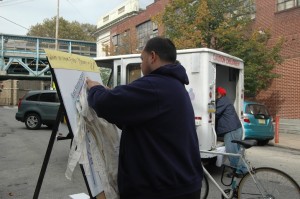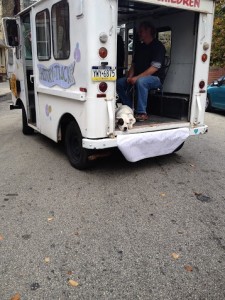What may have been at the heart of the sentiments I heard about how historians who work beyond the professoriate are better placed to know the publics they want to write for and reach comes down to the types of field work different historians perform.
Edupreneur or Institutional Historian? Questions Raised by SHEAR & Podcast Movement
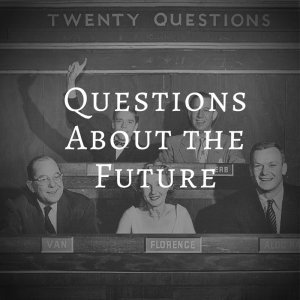 This past weekend, I attended Podcast Movement, the world’s largest podcast conference.
In this post, I reveal the ideas Podcast Movement 2015 gave me and helped me to articulate, including the idea of whether I want to be an edupreneur or an institutional historian.
This past weekend, I attended Podcast Movement, the world’s largest podcast conference.
In this post, I reveal the ideas Podcast Movement 2015 gave me and helped me to articulate, including the idea of whether I want to be an edupreneur or an institutional historian.
Culture Shock
Podcast Movement marked my first non-academic conference and it left me with a feeling of culture shock for two reasons: First, the conference took place in Fort Worth, Texas.
Second, I attended the conference as an historian in a world that appears dominated by marketers.
A New England Yankee in Fort Worth, Texas
My trip to Podcast Movement marked my first visit to the Dallas/Fort Worth area. I have visited Houston twice and find it to be a cosmopolitan city that sprawls like no other city I have ever visited (even Los Angeles). Although I have enjoyed my visits to Houston, I will admit that I left disappointed that it didn’t feel like the Texas I had imagined.
I am disappointed no longer.
Not long after I deplaned in Fort Worth, I asked for directions to the shared van stand. The man who assisted me called me “darlin’” and pointed the way. I had expected a slightly southern accent, but the term caught me off guard. I couldn’t help but think that my helpful guide was being a bit fresh.
It turns out, he wasn’t being brazen. When I reached the shared van stand the male attendant also used “darlin’” to address me. In Texas, “darlin” is used in place of “ma’am.”
Other cultural experiences included country music (not the pop kind), cowboy boots (Texans really wear them), choices regarding the pork and beef you put in your Tex-Mex tacos (choices?), and a few other linguistic variations.
My visit to Fort Worth reminded me why I love, and am so fascinated by, the United States. The U.S. stands as a huge country, with many regional identities, and yet every citizen who lives within its borders proclaims to be “an American.” We portray ourselves as one people and yet Americans in Fort Worth, Texas are different from Americans in Boston, Massachusetts.
An Historian Attends a Non-Academic Conference
What happens when you attend a non-academic conference? You get a hefty conference badge and a swag bag!
Inside my swag bag I found a glossy, color program, ads for corporate sponsors, a book, sunglasses, and a portable power stick to charge my smartphone or tablet.
Aside from the swag bag, I experienced business card overload.
A friend told me that I should bring at least 100 business cards to the conference and develop a system for dealing with the business cards I received. I laughed at these suggestions.
Earlier this month I attended SHEAR. I handed out more business cards at SHEAR than I have ever handed out at one conference; I probably gave out between 15-20. At SHEAR and other academic conferences I follow the tried and true etiquette of giving a card only when asked or when I want someone to remember me after a conversation.
At Podcast Movement, attendees handed out business cards to everyone they saw, regardless of whether they engaged you in conversation.
I must have given out between 75 and 80 business cards and between 100-200 Ben Franklin’s World bookmarks. I think I came home with more than 100 business cards.
Finally, I have never been to a conference where so many of speakers presented without being aware of the composition of their audience.
Podcast Movement attracted an audience of hobbyists, business owners, marketers, and public radio professionals. I enjoyed many conference sessions and panel discussions, but the public radio professionals spoke to everyone as if their audience worked in public radio and had NPR’s budget. As small as NPR’s budget may be, it is much bigger than that of an indy podcaster.
Additionally, many of the presenters at “How-To Monetize Your Podcast” sessions spent more time selling themselves than they did conveying useful information about how a podcaster could court advertisers or develop salable products. They were marketers, not educators.
When you attend a history conference, nearly every presenter knows their audience. I found the change of pace at this quasi-business conference a bit jarring at times.
Standing at a Crossroads
As different as Podcast Movement was from the academic conferences I normally attend, I had a really good time. I met many amazing podcasters and made several new friends. I heard fantastic talks given by Roman Mars (I met him too!), Marc Maron, and Sarah Koenig. I also came home with several ideas about how I can tweak Ben Franklin’s World and grow its audience.
I plan to start with developing an app and by seeking crowdfunding.
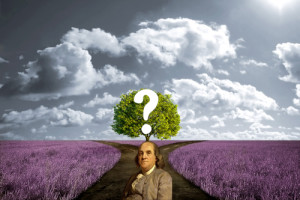 Attending both SHEAR and Podcast Movement also helped me articulate that I feel like I am standing at a crossroads with Ben Franklin’s World.
Attending both SHEAR and Podcast Movement also helped me articulate that I feel like I am standing at a crossroads with Ben Franklin’s World.
The podcast started as an experiment. Now that it has and continues to succeed, I need to decide whether I am an “edupreneur” starting a history-based business or whether I am a podcaster looking for an institutional job.
If I am honest with myself, I want to be the latter.
I am an historian and educator. I know little about starting a business and the thought of "monetizing" history makes me uneasy.
At SHEAR some of my colleagues seemed surprised I wasn’t on the job market. They told me I have an impressive work portfolio. I appreciate their recognition, but no institutions place job ads for the type of work I do so I have stopped looking.
Creating public digital history projects is important work, it is the type of work that will return history to the forefront of the public mind, which will in turn help us get funding and increase our enrollment rates.
But public digital history projects do not contribute to our culture’s corporate model of university education. Nor is it the type of work that earns tenure or garners an alternative academic position. I am a digital historian, but I don’t work on databases that lead to a better understanding of historic sources.
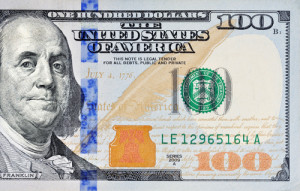 There is also the not-so-insignificant price tag that comes with creating and operating a public digital history project. Technology allows us to convey history in incredible and meaningful ways to large public audiences. But technology isn’t always free.
There is also the not-so-insignificant price tag that comes with creating and operating a public digital history project. Technology allows us to convey history in incredible and meaningful ways to large public audiences. But technology isn’t always free.
Ben Franklin’s World costs approximately $90 per episode to produce (sometimes more) and this cost does not include my time.
If I fulfill my goal of completely outsourcing my audio editing, each episode will cost $165, again not including my time. This cost is far less than NPR spends on each of its podcast and radio episodes, but it still means that a project such as mine requires a minimum operating budget of $360-$450 per month to keep it going.
Ideally, I would have a budget of $660-$825 per month so I can create more time for my scholarship.
In a perfect world, my monthly budget would be closer to $1,000 per month so I could hire graduate students to find and attach primary source documents, and suggestions for how educators can use them in their classrooms, to each episode.
I am not sure an institutional digital history job is in my future.
Conclusion
I suppose in the end I will be an edupreneur who holds hope that some day there will be institutional jobs for historians like me. Then we can help institutions build new projects and train others who want to engage in public digital history.
 Until that day comes, I will persist in my work. I keep going because I believe that the historical profession has to take history to the public. We need to help our fellow citizens remember why the past and what we do is important. I believe that technology and new media can help us bring history back into the forefront of the public mind.
Until that day comes, I will persist in my work. I keep going because I believe that the historical profession has to take history to the public. We need to help our fellow citizens remember why the past and what we do is important. I believe that technology and new media can help us bring history back into the forefront of the public mind.
I am not sure how long the podcast will continue, but I do know that I want to build a career that includes both traditional archival research and writing and experimentation with public digital history projects. I am not alone in this desire. However, ours is a tricky road.
When we bootstrap and succeed in our work the beancounters at institutions will at some point take note. I think they will appreciate our work, but they will question why they should hire us. We are, after all, doing this important and beneficial work for free. This thought has me staring down the road of edupreneur.
The History Truck
 Do you know about the Philadelphia History Truck?
Do you know about the Philadelphia History Truck?
In April, I had the opportunity to meet Erin Bernard, the creator, curator, and public historian of the Philadelphia History Truck at the National Council on Public History Conference in Nashville.
Like a food truck, the History Truck brings history to the people. Erin strives to tell the story of Philadelphia one neighborhood at a time. Her goal is to connect Philadelphians to their history and allow them to participate in the processes of museum work.
In this post, you will discover how the History Truck works and how you can support its efforts.
How the History Truck Works
Erin, her team, and truck operate in a 10-step cycle:
1. Partner with a neighborhood association
2. Build community relationships by participating in neighborhood activities
3. Facilitate 1:1 oral history interviews & host a storytelling block party featuring neighborhood memories and objects
4. History Truck staff conduct research to verify and contextualize oral histories about the community
5. Use the truck to transport and display an historically-based art exhibit in community green spaces
6. Hold meetings with community members to design a new exhibit about their community
7. Display the exhibit in a neighborhood space to help activate the cultural energy within the neighborhood and empower community members to see and use their neighborhood as a museum and art space
8. Host an exhibit opening that celebrates the artists within the community who helped to make the exhibit
9. Downsize the exhibit and use the truck to transport it across Philadelphia for display in other neighborhoods as a means of connecting neighborhoods with the community message
10. Select a new neighborhood. Start the cycle again
Tonight, June 19, 2015, the Philadelphia History Truck will host its second-annual community exhibit: They Say They Gonna Build, an exhibit that explores university expansion and community building in North Philadelphia.
Conclusion
Erin has proven that the History Truck model works.
She has enabled residents in two Philadelphia neighborhoods to connect with their past and participate in conveying their history to their fellow Philadelphians. However, like digital history projects, the work of the History Truck requires time, manpower, and funding to keep going.
In fact, the Philadelphia History Truck project needs a new truck!
For the past two years, Erin and her team have borrowed a truck while they demonstrated that the "History Truck" model of community-based history works. Now the project needs a new truck that will provide it with a permanent home.
Please consider supporting this endeavor. You can find more information about the History Truck and its Indiegogo campaign by clicking on the appropriate links.
History Communicators: How We Can Return History to the Forefront of the Public Mind
 How can historians solve the disconnect between the scholarship we produce and the world outside of museums and universities?
How can we help non-specialists connect with the past in a way that makes it relevant to their present?
How can historians solve the disconnect between the scholarship we produce and the world outside of museums and universities?
How can we help non-specialists connect with the past in a way that makes it relevant to their present?
On Thursday, April 16, 2015, the National Council on Public History offered “History Communicators," a conference panel with an idea that may help the historical profession better connect with and serve the needs of society.
In this post, you will discover what “history communicators” are, where the idea came from, and thoughts about how the historical profession might integrate this new breed of historian into the profession.
The Origin of History Communicators
The idea for history communicators originated with Jason Steinhauer.
Steinhauer works as a program specialist at the John W. Kluge Center at the Library of Congress. The Kluge Center strives to “bring together scholars and researchers from around the world to stimulate and energize one another, to distill wisdom from the Library’s rich resources, and to interact with policymakers and the public.”
Steinhauer’s position has allowed him to interact with scholars from many different fields. This interdisciplinary experience introduced him to “science communicators,” a position that he would like to see historians adopt.
What is a Science Communicator?
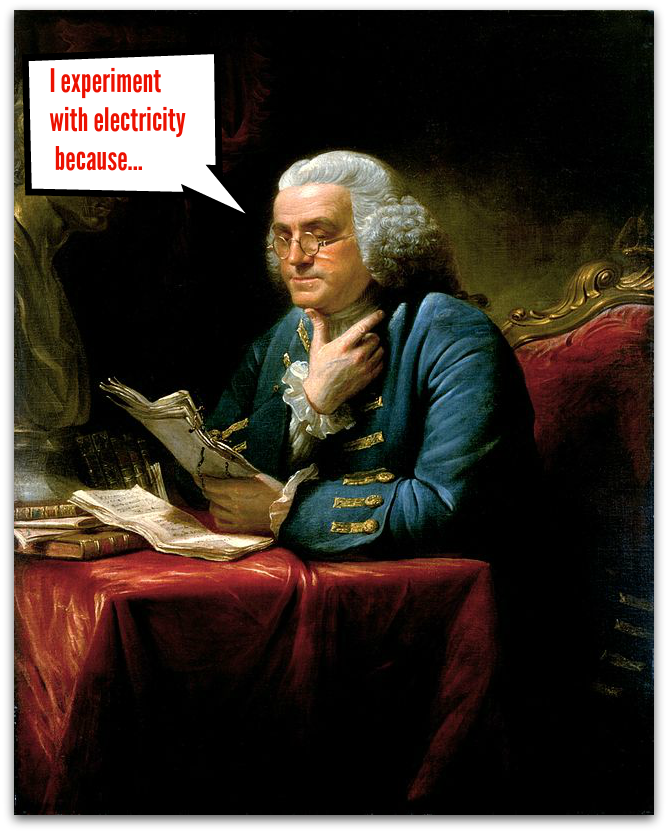 Across the disciplines of science, scientists realized that to attract funding for their work they needed to keep lawmakers, university trustees, and the public informed about how their research would better society.
Across the disciplines of science, scientists realized that to attract funding for their work they needed to keep lawmakers, university trustees, and the public informed about how their research would better society.
Scientists recognized that the demands of lab research and university teaching prevented many researchers from discussing their investigations with those who might fund them. They also found that many researchers lacked the ability to discuss their work in a way that lawmakers, taxpayers, and university trustees could understand. The profession solved this problem by creating a new kind of scientist: A Science Communicator.
Science communicators hold Ph.D.s in science, have lab experience, and they possess the communication skills necessary to write and speak about scientific research in a way that those who might fund it can understand.
Science communicators have increased interest in and funding for scientific research by helping non-scientists grasp how scientific work and study betters their lives and improves the world. It is in large part because of the work of science communicators that the idea of STEM and its funding has taken off.
The addition of science communicators to the scientific profession has been so successful that institutions such as the Massachusetts Institute of Technology have created programs to train more science communicators.
Astrophysicists Neil deGrasse Tyson and Janna Levin work as science communicators.
What Could History Communicators Do for Historical Research?
Steinhauer believes that we (historians and historical organizations) should adopt and apply the science communicator model to our discpline. He advocates that we create a new type of professional historian: The History Communicator.
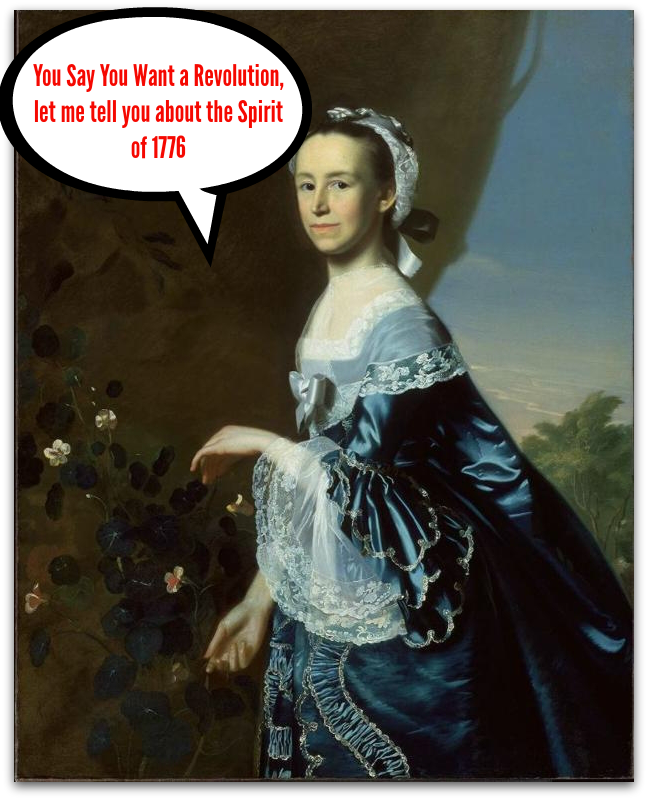 Steinhauer notes that historians will not be able to return history to its once prominent position in the public mind unless the profession adapts to the 21st-century job market.
Steinhauer notes that historians will not be able to return history to its once prominent position in the public mind unless the profession adapts to the 21st-century job market.
Today, universities and colleges demand that history professors assume heavy teaching loads, service requirements, and work in a “publish or perish” atmosphere. These job requirements, combined with little-to-no compensation for public outreach, have created a situation where academic historians have neither the time nor motivation to interact with and help the public connect with their scholarship.
Furthermore, Steinhauer opines that academic historians should not be responsible for communicating their ideas to non-specialists: “To produce new, sharp scholarship requires tremendous time and research…Historians, then, should not also be responsible for promoting and explaining the significance of their scholarship to the public.” Instead, academic historians should be able to “focus on conducting deep research, writing, publishing, teaching and working toward tenure—all of which America needs."
If communicating the ideas of history and its relevance to the present should not fall to academic historians, whose responsibility is it?
This is where the idea of history communicators comes in.
 According to Steinhauer, the “complex and political task of bringing historical research out of the scholarly communication cycle and into the mainstream requires a unique set of skills that must be cultivated, practiced, and applied across a wide range of media now available.”
According to Steinhauer, the “complex and political task of bringing historical research out of the scholarly communication cycle and into the mainstream requires a unique set of skills that must be cultivated, practiced, and applied across a wide range of media now available.”
Given the large time commitment that this work requires, Steinhauer would like to see the profession create and fund the role of history communicator, a “new class” of historian that will “operate on the edge and intersection of new historical scholarship and the constantly-evolving world of communicating to the public in order to keep history relevant in the 21st century.”
For Steinhauer, to be a history communicator means to be part digital humanist, content strategist, marketer, blogger, journalist, lobbyist, and historian.
History Communicators: A Discussion at NCPH 2015
Steinhauer presented his idea for history communicators at the 2015 NCPH annual meeting with Julie Golia (Brooklyn Historical Society), Nicole Hemmer (US News & World Report), and Rebecca Onion (Slate).
 Steinhauer began the conversation by explaining how he came up with the idea for history communicators, the work he saw these historical professionals doing, and how public historians stood poised to pioneer the profession.
Steinhauer began the conversation by explaining how he came up with the idea for history communicators, the work he saw these historical professionals doing, and how public historians stood poised to pioneer the profession.
Steinhauer reiterated his view that the role of academic historians should be to produce scholarship and train students how to read primary sources, skills critical for history communicators. He also admitted that well-trained, academic historians would need to let go of their ideas of the exclusivity of the profession for history communicators to successfully perform their job.
Golia, Hemmer, and Onion served as examples of history communicators and offered insight into the types of work they do to better connect society with its past. All three work as journalists and public history professionals.
When the floor opened for comment, several public historians raised questions about where funding would come from for this type of work and where history communicators would fit into the profession. Their commentary raised the important point that funding cuts have impacted public history sites as much as, or more than, college and university departments. As a result, many public historians also do not have time to interact with the public.
To get a feel for the conversation prompted by this panel, check out “History Communicators is Launched.”
 Thoughts and Ideas
Thoughts and Ideas
I am a fan of Steinhauer’s idea: history needs history communicators.
With that said, I see three issues we need to tackle before we can create (officially) and integrate this new position into the historical profession.
First, we must solve the problem of where history communicators fit into the profession and who will pay them for their work.
It seems to me that nearly every professional historian agrees with the idea that historians need to interact with the public more. The majority of us understand that if we can restore history to the forefront of the public mind then we can fix, or at least lessen, our funding and enrollment problems. With that said, I do not see many colleges, universities, or public history organizations advertising positions for history communicators.
History communication is a job that everyone wants done, but wants someone else to pay for and do.
My passion for both producing serious historical scholarship and communicating it to the public has placed me in “professional historian limbo.” My academic and public colleagues admire and respect my work, but their university and organizational departments have no place for me or other history communicators. Therefore, many of us work without institutional or financial support.
 Second, we need to find an approach that allows all historians to practice history communication.
I disagree with Steinhauer's notion that academic historians shouldn’t be history communicators.
Second, we need to find an approach that allows all historians to practice history communication.
I disagree with Steinhauer's notion that academic historians shouldn’t be history communicators.
We shouldn't limit history communicators to historians of any specific historical background. The position of history communicator should be open to any professional historian who has the inclination to convey serious scholarship to the public.
Academically-trained historians are in many cases the best equipped historians to be history communicators because they know primary sources, know how they relate to the historiography, and how that historiography relates to the present. It would be best for the discipline if we could find a way to allow their active participation.
Third, we need to develop and integrate training that will enable history communicators to succeed.
We need to find space in our graduate, and possibly undergraduate, programs to add communication, technology, and marketing courses.
History communicators need to know not only history, but how to communicate, market, and place history into our technology-filled world.
We need to add training in writing, marketing, journalism, social media, blogging, podcasting, internet video production, app development, website creation, and, in the near future, virtual reality software to our student curriculums. I know this seems easier said than done.
Conclusion
Steinhauer has presented us with a great idea.
History communicators promises historians a way to return history to the forefront of public consciousness. This accomplishment would not only improve our society, but it may also alleviate our funding and enrollment problems.
 Get Involved
Get Involved
On Wednesday, May 13 at 7pm EST, historians interested in history communication and adding history communicators to the profession will gather on Twitter to share ideas.
You can participate by following the hashtag: #histcomm.
*For more on history communicators, see Steinhauer and James Grossman’s “Historians and Public Culture: Widening the Circle of Advocacy."
Public History as a Specialty: Reflections on the 2015 NCPH Conference
 Have you ever stepped outside of your professional comfort zone by attending a new conference or event?
Between April 15 and 18, 2015, I tried something new: I attended my first annual meeting of the National Council on Public History. The meeting took place in Nashville, Tennessee.
Have you ever stepped outside of your professional comfort zone by attending a new conference or event?
Between April 15 and 18, 2015, I tried something new: I attended my first annual meeting of the National Council on Public History. The meeting took place in Nashville, Tennessee.
In this post, you will discover what makes the NCPH annual meeting similar to and yet different from traditional academic history conferences and how the conference demonstrates public history as a specialty.
Overview of History on the Edge, NCPH 2015
The 2015 NCPH annual meeting met to “consider the edges of what we do and who we are” as public historians.
Panels explored the future of public history, how the field can collaborate with other disciplines and interact with new audiences, and how public historians can contribute to “the cutting edge questions of our societies."
(2015 NCPH Annual Meeting Program)
Exploring New-to-Me Professional Territory
 I chose to attend NCPH instead of OAH because as a hybrid historian, I live with one foot in academic history and one foot in public history, and yet I had never attended a public history conference.
I chose to attend NCPH instead of OAH because as a hybrid historian, I live with one foot in academic history and one foot in public history, and yet I had never attended a public history conference.
In 2014, I watched as my Twitter stream filled with interesting tweets about NCPH sessions and about how much fun my colleagues were having at the conference, so I made a commitment to attend my first NCPH annual meeting in 2015.
Over the course of the 3-day conference, I could not help but compare my NCPH experience with my participation in numerous AHA, OAH, SHEAR, and OIEAHC conferences. My mind made three important observations about the differences between these experiences and about the historical profession.
1. Public History is a Specialty
The NCPH defines public history as “the many and diverse ways in which history is put to work in the world.” Some know public history as “applied history” as the profession seeks to apply history to real world issues.
By those definitions, I qualify as a public historian.
I claim to be part public historian because I spend a good portion of my time trying to help non-historians form a meaningful connection with history. I perform this work by writing articles, podcasting, tweeting, and leading occasional tours of revolutionary Boston.
Although I qualify as a public historian professionally, I felt a bit out of my element at NCPH.
 As I attended panels and conversed with colleagues, I came to understand that professionally-trained public historians have specialized skills that many university or research-driven historians overlook.
As I attended panels and conversed with colleagues, I came to understand that professionally-trained public historians have specialized skills that many university or research-driven historians overlook.
Public historians often work with and produce a different type of scholarship from those of us who trained as academics. They study, create, and apply theories of historical interpretation when they consider how to create exhibits and convey information to the public.
Sessions on project management and how to include and interpret women at historic sites offered a glimpse of how public historians create exhibits and interpretive programs. This process involves more than just determining what historical facts to include or omit. It involves a careful consideration of audience, perspective, organization mission statements, funding, exhibit space, and the consideration and application of theories for how to convey information to visitors through print, visuals, and tech devices.
Anyone who thinks that public history makes a great “Plan B” for graduate students who train as academic historians should attend NCPH. Once they take part in a few sessions and interact with their public history colleagues they will realize that public historians work on history, but in a different way from academics.
Public historians grapple with a different set of scholarly issues that most academic programs don’t expose their graduate students to. If academic programs want to make public history a viable “Plan B” for their graduates, then they need to collaborate with public history programs to offer training in the skillsets required by the public history profession.
2. Historians Need to Collaborate More
 Public historians face many of the same or similar problems that academic historians face: Lack of funding, inadequate institutional resources or support, and insufficient compensation for interacting with the public.
Public historians face many of the same or similar problems that academic historians face: Lack of funding, inadequate institutional resources or support, and insufficient compensation for interacting with the public.
Additionally, both academic and public historians grapple with interpretive questions that each specialty could help the other answer.
In a session about how to include and interpret women in historical sites and museum exhibits, someone raised the question about how public historians can overcome the lack of women’s voices in the historical record. Academic historians receive training in how to look at and use what the historical record does not say.
Conversely, some of the techniques that public historians use to interpret history could be of real value to academic historians.
As I mentioned in “Wanted: 21st-Century History Job,” the future of the field lies in collaboration and in the development of more hybrid historians. Together academic and public historians can cultivate wide public awareness about the past and convey history in a way that makes it as relevant to the present.
3. NCPH is a Fun and Great Conference for Networking
I won’t lie, I was nervous about attending NCPH.
Part of what I love about attending conferences is catching up with friends. I knew I would know a few attendees from Twitter, but the majority of my professional network and historian friends do not attend NCPH.
 My fears of being unwelcome or lonely disappeared within the first 15 minutes of the conference. The first person I met introduced herself and we became fast friends.
My fears of being unwelcome or lonely disappeared within the first 15 minutes of the conference. The first person I met introduced herself and we became fast friends.
Most NCPH attendees were very welcoming. They wanted to be at NCPH and they wanted to interact with and meet new people.
In fact, the public historians I met seemed more concerned with meeting me as a person rather than me as an historian. We met each other as people before we delved into professional chit-chat about where we worked and what areas of history interested us. This type of interaction happened throughout the conference.
Additionally, NCPH encourages attendees to visit the host city. They build walking and museum tours into the conference program; participating in a tour counts as attending a conference session.
I am famous for attending history conferences and never visiting the sites around me because I am so focused on the conference program. I would have done the same at NCPH, but the program encouraged me to have fun and consider history and history conversations outside of the conference hotel. Tours also allowed me to meet and meaningfully network with more people during these shared experiences.
Conclusion
NCPH is a fun conference and one that every historian should make a point to attend.
NCPH will introduce you to a welcoming group of historians and their professional work.
I plan to attend NCPH every two or three years. This periodic attendance will help me stay abreast of what my public historian colleagues are up to, what challenges they face, and where opportunities exist for collaboration between academically-trained and public historians.
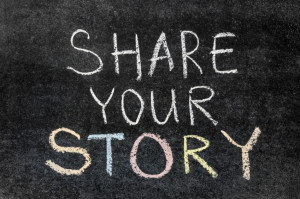 Share Your Story
Share Your Story
Have you ever attended NCPH? What was your experience like?
What is the most fun history conference you attend?


